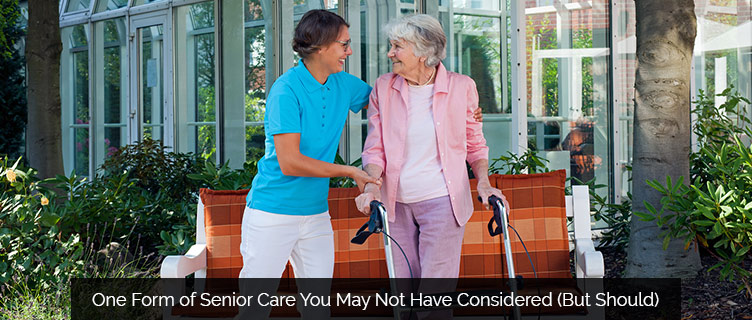Nowadays, there is a lot of talk about mental health. To be honest, we as a society, have overlooked the importance of mental health for a long time. We all recognize and understand the dangers, the symptoms, and sometimes even the realities and causes of physical ailments; everything from the common cold, to a broken wrist, to serious conditions such as cancer and malaria. But on mental health matters, we’re still lagging behind. But we are catching up.
Senior Care
Having said all that, let me ask you this: when I use the term “senior care”, what do you think of? Your mind probably conjures up images of a caregiver helping a senior get up and down stairs, or pushing a senior around in a wheelchair, or perhaps leading seniors through a prescribed set of exercises. These are all aspect of the senior’s physical health. What about the mental health of seniors?
At this point, you’re probably thinking about Alzheimer’s Disease or dementia. Technically, these are neurodegenerative diseases. They obviously affect the mental capacity of seniors, but they do have some physical causes we have been able to identify. We can see that a brain of somebody with Alzheimer’s looks different from the brain of somebody who does not. Executive Home Care can provide caregivers who are especially skilled at helping clients with Alzheimer’s. You can learn more about that here. But this article addresses something else.
Depression
Seniors are at a higher risk of depression than are other demographics. This is because seniors are at a higher risk of isolation and loneliness than are other demographics. Seniors might live in different cities from their families, they may not be able to get outside much, and they may have outlived their closest friends and spouses. They lack companionship.
Companion Care
That’s why Executive Home Care offers companion care. Isolation can lead to loneliness which can lead to depression which can lead to physical symptoms: lack of appetite, lack of energy, and a flagging immune system. Companion care can prevent all of this. Companion care is ideal for seniors who are physically able to take care of themselves but whose mental and emotional health is at risk. Companion care sees a caregiver come by and spend time with a senior; talking, playing games, helping with correspondence, etc. There is a lot companion caregivers can do to help.
Furthermore, companion care can be paired with other types of senior care as well. This means that while caregivers are helping seniors with their more tangible tasks and problems, they can also work with seniors to improve their mental and emotional wellbeing. Companion care has the potential to completely turn around a senior’s life and it should not be overlooked. Companion care also has the added benefit of opening the door to further senior care. Many seniors can be resistant to the idea of accepting any type of care. But with companion care, you have already established a senior care service such that, if more complex care becomes required in the future, the senior in question will likely be more comfortable with the idea.
Get in Touch
If you would like to learn more about companion care and see if it’s right for your family, please get in touch with us today.
